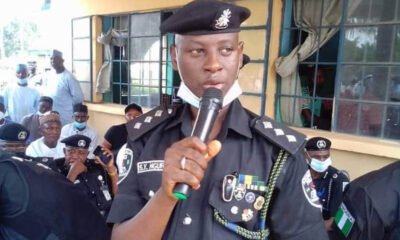International
Donald Trump pleads not guilty to classified documents charges

Trump’s lawyers asked for a jury trial during the former president’s arraignment Tuesday at a federal courthouse in Miami. “We most certainly enter a plea of not guilty,” Trump attorney Todd Blanche told the judge.
During the hearing, Trump sat hunched over with his arms crossed and a scowl on his face. He did not speak.
Here’s what else happened at Tuesday’s hearing, which ended after roughly 45 minutes:
- Magistrate Judge Jonathan Goodman ruled that Trump could not communicate with Nauta about the case. The judge also told prosecutors to make a list of potential witnesses that Trump can’t communicate with about the case – except through counsel.
- The judge did not, however, place any travel restrictions on either defendant.
- The Justice Department recommended that both Trump and Nauta be released with no financial or special conditions. Prosecutor David Harbach said that “the government does not view either defendant as a flight risk.”
READ ALSO:
- Man arrested on suspicion of murder after three people killed in Nottingham
- BREAKING: Kalu emerges deputy House speaker unopposed
- [BREAKING] Cook-a-thon: Guinness World Records announces Hilda Baci new record holder
- Goodman began the hearing thanking “the entire law enforcement community” for their work on Tuesday.
- Before the arraignment hearing, deputy marshals booked the former president and took electronic copies of his fingerprints. They did not take a mugshot of Trump since he is easily recognizable. The booking process took about 10 minutes.
The criminal charges in the Justice Department’s classified documents case escalates the legal jeopardy surrounding the 2024 GOP front-runner. Special counsel Jack Smith attended Tuesday’s arraignment.
Trump faces 37 felony counts, alleging he illegally retained national defense information and that he concealed documents in violation of witness-tampering laws in the Justice Department’s probe into the materials.
Stop at Cuban restaurant
After the court hearing, Trump made an unannounced stop at Versailles, a well-known Cuban restaurant in Miami. Trump was surrounded by dozens of his supporters inside the restaurant, shaking hands and snapping photos with them.
“Food for everyone,” Trump told those gathered as they cheered.
At one point, Trump’s supporters sang him “happy birthday.” Trump’s birthday is on Wednesday.
“Some birthday, we got a government that is out of control,” Trump could be heard saying.
Following the restaurant stop, Trump flew back to New Jersey Tuesday evening where he spoke publicly at his Bedminster resort about what he called the “fake and fabricated charges.” The former president claimed he had “every right to have these documents” and said prosecutors “ought to drop this case immediately because they’re destroying our country.”
“They should never have done this,” he told the gathered crowd. “This was an unwritten rule, you just don’t unless it’s really bad. But you just don’t. But the seal is now broken.”
Earlier in the day, Trump posted on his social media before heading to court that it was “ONE OF THE SADDEST DAYS IN THE HISTORY OF OUR COUNTRY. WE ARE A NATION IN DECLINE!!!”
READ ALSO:
- BREAKING: Abass elected House of Representatives Speaker
- BREAKING: Senator Jibrin emerges Deputy Senate President unopposed
- Cook-a-thon: Jubilation as Chef Dammy surpasses 100 hours
Tuesday’s hearing will kickstart what will likely be a winding, dramatic judicial process, with criminal and appeal proceedings that may play out for years. US District Judge Aileen Cannon – a Trump nominee whose decision last year to order a third-party review of an FBI search of Mar-a-Lago was widely criticized and overturned by a conservative appeals court – has been assigned the case.
Attorneys Todd Blanche and Chris Kise represented Trump in court for the arraignment. However, the role Kise will play going forward is unclear, and he was sidelined during last year’s litigation over the Mar-a-Lago search amid Trump team infighting.
Another Trump attorney, Alina Habba, spoke outside the courthouse ahead of Trump’s arraignment, saying that the former president was “defiant.”
Habba ridiculed what she called a “two-tiered system of justice” and called the indictment an “unapologetic weaponization of the criminal justice system.”
The Justice Department’s counterintelligence chief Jay Bratt, who has been a key player in the documents probe so far, also attended Tuesday’s hearing, along with prosecutors Harbach and Julie Edelstein.
Seriousness of the charges
Before last week’s federal indictment, Trump also faced criminal charges brought by New York City’s local prosecutors for an alleged hush money scheme in the 2016 campaign in which Trump is accused of falsifying business records.
The new charges in the DOJ documents case are drastically more serious and present the possibility of several years in prison if Trump is ultimately convicted.
Thirty-one counts that Trump faces are for willful retention of national defense information, a charge that does not turn on whether the documents are classified. In addition to the obstruction conspiracy, he also faces four counts related to the concealment of the documents, as well as a false statements charge.
READ ALSO:
- BREAKING: Akpabio emerges Senate President
- 2023 Hajj: Stakeholders disagree with NAHCON over slashing of Nigerian pilgrims’ days in Madinah
- Jostle for new IGP begins over Baba rumoured retirement
“In a case like this, obstruction and tampering help prove the main charge, that the defendant willfully engaged in the charged conduct,” said David Aaron, a former federal prosecutor in espionage section of the DOJ’s national security division and a current senior counsel at Perkins Coie. “Those facts could also affect how a judge, the jury, or the public views the case and could substantially affect sentencing.”
What happens next
Now that Tuesday’s hearing is in the rearview mirror, the case will enter a legal grind of pretrial proceedings, including likely disputes over what evidence is put before a jury and whether the case should be thrown out altogether before going to trial. The Trump team will have plenty of opportunity to drag things out – potentially until after the 2024 election.
One major x-factor in the prosecution of the case is its assignment to Cannon, who sits in Ft. Pierce, Florida, but who is part of the pool of judges who are randomly cases filed in West Palm Beach, where the new indictment was brought.
“There are few things more powerful than a district judge in a federal case,” said Alan Rozenshtein, a former attorney in the DOJ National Security Division who is now a University of Minnesota law school professor. “She could – if she wanted to – cause huge problems for the prosecution. Would they be existential problems? Probably not.”
Cannon’s approach to last year’s Trump lawsuit challenging the FBI’s Mar-a-Lago search raised eyebrows among legal experts across the ideological spectrum for how she appeared to bend over backward to create special legal rules in favor of the former president. Her rationale for why such a review was necessary was torn apart by a panel of right-leaning appellate judges, including two Trump appointees, on the 11th US Circuit Court of Appeals last December.
“She got so banged up by the 11th Circuit that she might be ultra-cautious,” Kel McClanahan, a national security lawyer and an adjunct professor at the George Washington University Law School, told CNN. “We just don’t know.”
Donald Trump
CNN
International
‘Bitcoin could replace U.S. Dollar as global currency’

‘Bitcoin could replace U.S. Dollar as global currency’
BlackRock Chairman and CEO Larry Fink acknowledged in his 2025 annual letter that Bitcoin could challenge the U.S. dollar’s status as the global reserve currency.
“If the U.S. doesn’t get its debt under control, if deficits keep ballooning, America risks losing that position to digital assets like Bitcoin,” Fink wrote in BlackRock’s March 2025 letter.
The statement marks a significant shift from the head of the world’s largest asset manager, recognizing digital assets as potential alternatives to the dollar.
Throughout the letter, Fink mentioned Bitcoin seven times and the dollar eight times, signaling the growing relevance of digital currencies in financial discourse.
READ ALSO:
- Aide to Israel’s Netanyahu arrested in PM corruption probe
- Kano Gov Yusuf, Sanusi linked to Eid killings
- ‘I was offered N5bn bribe to impeach Fubara’
BlackRock’s letter frames Bitcoin as both an innovation and a risk, warning that if investors view it as a more stable long-term store of value than the dollar, it could undermine U.S. financial primacy.
Fink stressed that “two things can be true at the same time,” referring to both innovation and risk in digital asset development.
Beyond Bitcoin, Fink positioned tokenization as a transformative force for capital markets, likening it to the shift from postal mail to email.
He argued that tokenized assets could bypass financial intermediaries and democratize access to investments through fractional ownership and improved voting systems.
BlackRock also highlighted India’s digital identity system as a model for secure transactions, with over 90% of Indians verifying smartphone transactions—a benchmark for future tokenized economies.
‘Bitcoin could replace U.S. Dollar as global currency’
International
Aide to Israel’s Netanyahu arrested in PM corruption probe

Aide to Israel’s Netanyahu arrested in PM corruption probe
Israeli police announced on Monday the arrest of two individuals, one of whom was confirmed by Prime Minister Benjamin Netanyahu’s ruling Likud party as a senior aide to the long-serving leader.
Israeli media identified the two men as Yonatan Urich and Eli Feldstein, both reportedly aides to the prime minister and allegedly linked to what has been dubbed locally as the “Qatargate Affair.”
The arrests ratchet up political tensions in the country, where the government is trying to fire both the domestic security chief and attorney general, while expanding the power of politicians over the appointment of judges.
The moves have reignited a protest movement in Israel, coinciding with the government’s resumption of fighting this month in the Gaza Strip.
Feldstein had separately been arrested late last year and released to house arrest on accusations of leaking a classified document related to hostage negotiations in Gaza, to shift critical media coverage of the Israeli leader.
Media reports on Monday further indicated that Netanyahu himself is expected to be questioned by police in connection with the Qatargate case .
Netanyahu is separately on trial over corruption allegations that he denies.
READ ALSO:
- Kano Gov Yusuf, Sanusi linked to Eid killings
- ‘I was offered N5bn bribe to impeach Fubara’
- 2027 election: Shehu Sani declares bid for Kaduna central senatorial seat
“Following an investigation being conducted by the National Unit for International Investigations (YAHBAL)… two suspects were arrested today for questioning,” the police said in a statement, noting that the case remains under a court-imposed gag order.
– ‘A new low’ –
Israeli media also reported that a journalist from a prominent Israeli publication had been summoned for questioning.
AFP was unable to independently verify the identities of those arrested.
Requests for confirmation from Netanyahu’s office were not immediately answered.
International
Ceasefire negotiations: Trump ‘very angry’ with Putin
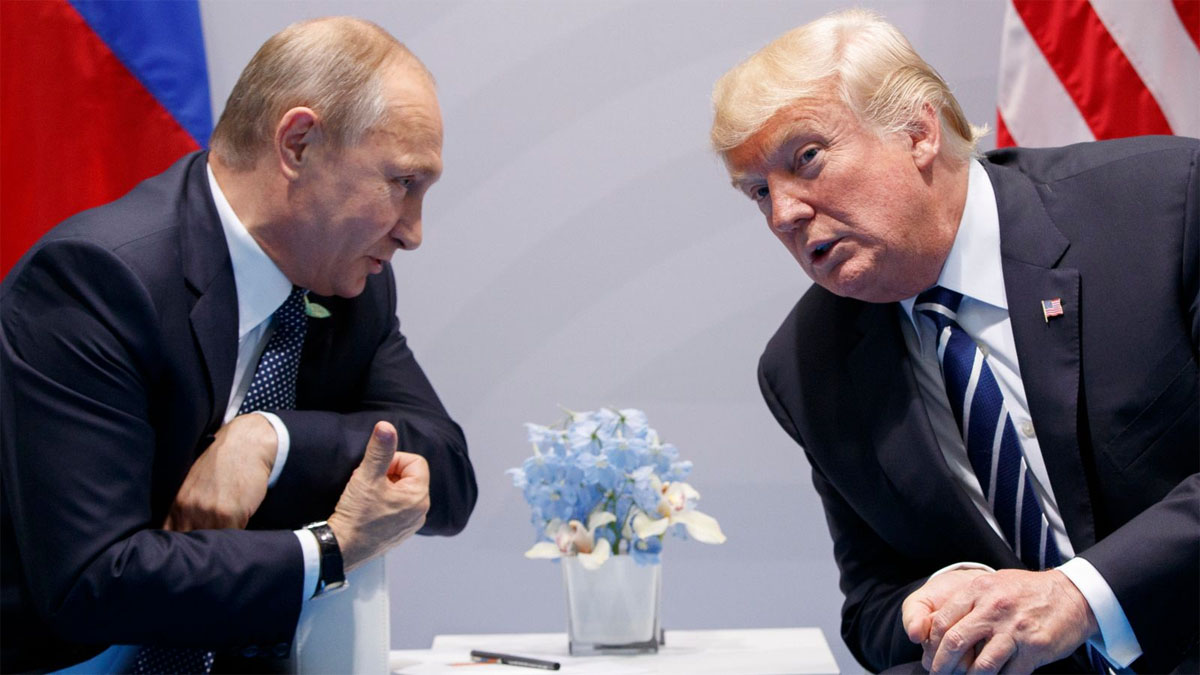
Ceasefire negotiations: Trump ‘very angry’ with Putin
Donald Trump has said he is “very angry” and “pissed off” with Russian President Vladimir Putin after weeks of attempting to negotiate a ceasefire in Ukraine.
In an NBC News interview, the US president criticised Putin for attacking Ukrainian President Volodymyr Zelensky’s credibility, and threatened to impose a 50% tariff on countries buying Russian oil if he did not agree to a ceasefire.
Last week, Putin suggested the possibility of a UN-run government in Ukraine to organise new elections and then begin peace talks.
Trump’s comments mark a change in tone towards Putin. Over the past six weeks, Trump has publicly harangued Zelensky and demanded numerous concessions from Ukraine’s president.
In turn, he has flattered Putin and largely given in to the Russian president’s demands.
European leaders had worried that Trump was cosying up to Putin.
But Trump’s comments on Sunday appeared to be a departure from that dynamic. It is the first time the US has seriously threatened Russia with consequences for dragging its feet in ceasefire negotiations, which would seem to put the diplomatic ball back in Moscow’s court.
NBC News reported that, in a 10-minute phone interview, Trump said he was very angry and “pissed off” when Putin criticised the credibility of Zelensky’s leadership, although the president has himself called Ukraine’s leader a dictator and demanded that he hold elections.
“You could say that I was very angry, pissed off, when… Putin started getting into Zelensky’s credibility, because that’s not going in the right location,” Trump said.
“New leadership means you’re not gonna have a deal for a long time,” he added.
READ ALSO:
When speaking about Putin, Trump said that the Kremlin knew of his anger, but noted that he had “a very good relationship” with the Russian leader and “the anger dissipates quickly… if he does the right thing”.
If Russia does not follow through with a ceasefire, Trump threatened to target its economy further if he thought it was Putin’s fault.
“If Russia and I are unable to make a deal on stopping the bloodshed in Ukraine, and if I think it was Russia’s fault – which it might not be… I am going to put secondary tariffs… on all oil coming out of Russia,” he said.
“There will be a 25% tariff on oil and other products sold in the United States, secondary tariffs,” Trump said, noting that the tariffs on Russia would come in a month without a ceasefire deal.
Secondary tariffs are sanctions on countries that do business with another country. They could constitute up to 50% on goods entering the US from countries still buying oil from Russia. The biggest such buyers by a long margin are China and India.
Zelensky wrote on social media following the interview that “Russia continues looking for excuses to drag this war out even further”.
He said that “Putin is playing the same game he has since 2014”, when Russia unilaterally annexed the Crimean peninsula.
“This is dangerous for everyone – and there should be an appropriate response from the United States, Europe, and all our global partners who seek peace.”
Trump said he would speak to Putin later in the week.
Moscow says the current Ukrainian authorities are illegitimate as President Zelensky has stayed in power beyond the end of his term and is therefore not a valid negotiating partner.
But Zelensky has stayed because elections have been put on hold, legally by martial law and practically by the chaos of war.
It would be almost impossible to hold a valid election with more than five million Ukrainian citizens displaced overseas and many hundreds of thousands away from home fighting on the front line.
READ ALSO:
- Ex-Rivers HoS wife cries for help over husband’s safety
- Fubara reacts as Ex-HOS, Nwaeke accuses him of bombing oil pipelines, Rivers Assembly
- Natasha: Emmanuel Uduaghan threatens to sue Senator Nwaebonyi
Russia launched a full-scale invasion of its neighbour, Ukraine, in February 2022. It currently controls about 20% of Ukrainian territory.
More than 100,000 people fighting for Russia’s military have now died as the war in Ukraine enters the fourth year, according to data analysed by BBC Russian, independent media group Mediazona and volunteers who have been counting deaths since the war began.
Ukraine last updated its casualty figures in December 2024, when President Volodymyr Zelensky acknowledged 43,000 Ukrainian deaths among soldiers and officers. Western analysts believe this figure to be an under-estimate.
Also in the NBC interview on Sunday, Trump said he was “not joking” when he said he would not rule out seeking a third term in the White House, despite it being prohibited by the US Constitution.
“A lot of people want me to do it,” Trump said. “But, I mean, I basically tell them we have a long way to go.”
During the call with NBC, he also again threatened to bomb Iran if it did not agree to a nuclear deal. Trump earlier this month sent a letter to the regime demanding negotiations.
“It will be bombing the likes of which they have never seen before,” he said, noting he would also impose secondary tariffs.
On Sunday, Iran’s president Masoud Pezeshkian said the country would not enter into direct negotiations with Washington concerning their nuclear programme, but indirect talks were possible.
“We don’t avoid talks; it’s the breach of promises that has caused issues for us so far,” he said. “They must prove that they can build trust.”
Ceasefire negotiations: Trump ‘very angry’ with Putin
BBC
-

 Uncategorized2 days ago
Uncategorized2 days agoBreaking: Moon sighted in Saudi, UAE, others, Eid-Fitr holds Sunday
-

 metro2 days ago
metro2 days agoRamadan ends in Nigeria, Sultan announces March 30 as Eid-el-Fitr
-
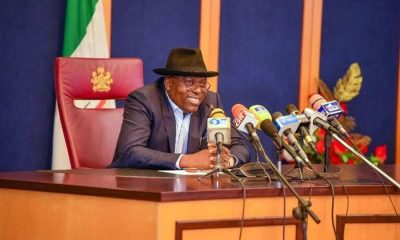
 metro3 days ago
metro3 days agoFubara reacts as Ex-HOS, Nwaeke accuses him of bombing oil pipelines, Rivers Assembly
-

 Opinion3 days ago
Opinion3 days agoBarbaric mass burning of innocents in Edo, by Farooq Kperogi
-
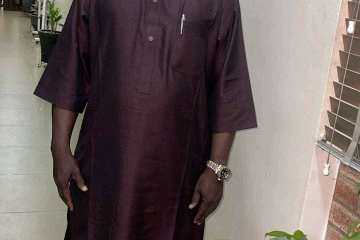
 metro2 days ago
metro2 days agoEmbrace environmental sanitation during Eid-Fitr, LAGESC boss tells Lagosians
-

 metro3 days ago
metro3 days agoEx-Rivers HoS wife cries for help over husband’s safety
-
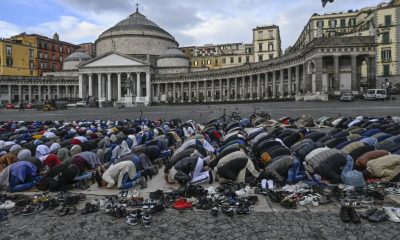
 International19 hours ago
International19 hours agoIn pictures: Eid celebrations around the world
-
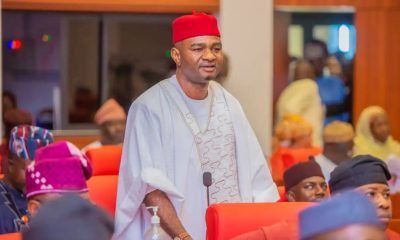
 metro3 days ago
metro3 days agoNatasha: Emmanuel Uduaghan threatens to sue Senator Nwaebonyi



